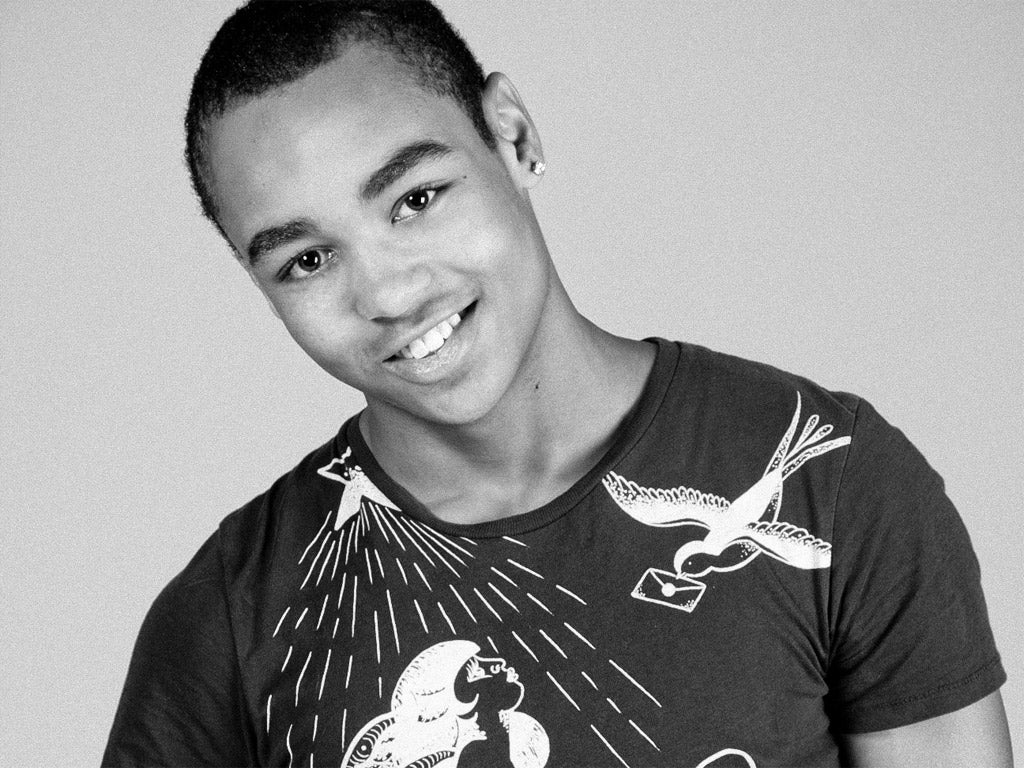Search for Belgium teen who went to Syria, but was he radicalised?
Jejoen Bontinck claims he worked in a hospital, not fighting for rebels

Your support helps us to tell the story
From reproductive rights to climate change to Big Tech, The Independent is on the ground when the story is developing. Whether it's investigating the financials of Elon Musk's pro-Trump PAC or producing our latest documentary, 'The A Word', which shines a light on the American women fighting for reproductive rights, we know how important it is to parse out the facts from the messaging.
At such a critical moment in US history, we need reporters on the ground. Your donation allows us to keep sending journalists to speak to both sides of the story.
The Independent is trusted by Americans across the entire political spectrum. And unlike many other quality news outlets, we choose not to lock Americans out of our reporting and analysis with paywalls. We believe quality journalism should be available to everyone, paid for by those who can afford it.
Your support makes all the difference.Dimitri Bontinck risked his life to bring his Muslim convert son home before he was killed on Syria’s battlefields, throwing himself into the middle of the bloody civil war to scour the rebel camps where he believed Jejoen was being held.
Mr Bontinck failed, returning to Belgium earlier this year not knowing if he would ever see his son again.
But last week, after eight months in which his family heard nothing and found themselves pouring over YouTube clips for sightings of the teenager, Jejoen decided to come home.
First, there were rumours he was in the Netherlands. Then Mr Bontinck told Belgian media he was going to Turkey to pick his son up. He will now only reveal that he “brought him back in a safe way” after a “secret” operation. By Saturday, to the outrage of his father, the 18-year-old was in police custody after entering Belgium to visit his Nigerian-born mother.
“He is not radicalised, he is not traumatised,” Mr Bontinck said. “They are stigmatising our children and this is not the right way to bring our children back. If they continue to stigmatise in this way the youngsters will never return to Belgium.”
Earlier this year Mr Bontinck claimed his son was recruited by the extremist group Sharia4Belgium and forced to go to Syria and fight with rebels trying to topple President Bashar al-Assad.
Jejoen now says he went of his own free will on a humanitarian mission. Belgian authorities confirmed his arrest on terrorism-related charges, and a court ruled that he must remain in custody for another month.
Whatever the truth, Mr Bontinck is relieved to have his son back. “The first moment I saw him physically, holding him in my arms, it was emotional for both of us,” he told The Independent.
Dozens of young Belgian men are believed to be fighting in Syria, but what put Jejoen on many front pages was his father’s extraordinary quest to find him. When Jejoen disappeared in February after telling his family he was going to study in Egypt, Mr Bontinck was sure he was in Syria. So the former soldier got on a plane to try and track his son down, enduring beatings and death threats by Islamist fighters as he went from camp to camp pleading for information.
Jejoen claims that he spent his time in Syria working in a hospital near the Turkish border and denies any involvement in the fighting. “I had to transport patients and different types of medicine,” he told the Flemish broadcaster VRT. “If I had really gone there to fight, I would have been dead now.”
During eight months working as a volunteer, he says he was held by Assad’s forces for six weeks, when he “subsisted on a bit of bread and a kind of cat food” and could hear the screams of torture victims in the building.
His fate will depend on whether Belgian police decide he helped recruit other people to go and fight in Syria, a crime which carries a jail sentence.
It is not only Belgium struggling to prevent idealistic young Muslims drawn to Syria. Authorities in Norway appealed on Monday for help after two teenage Norwegian girls of Somali origin were spotted near the Syrian border. The Netherlands, France and Britain have also expressed concern that their citizens could be killed, or come back radicalised by the al-Qa’ida-linked rebel factions.
Join our commenting forum
Join thought-provoking conversations, follow other Independent readers and see their replies
Comments